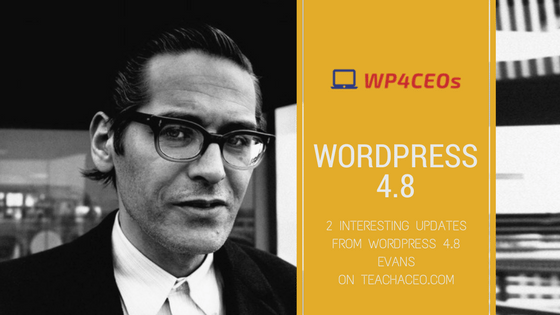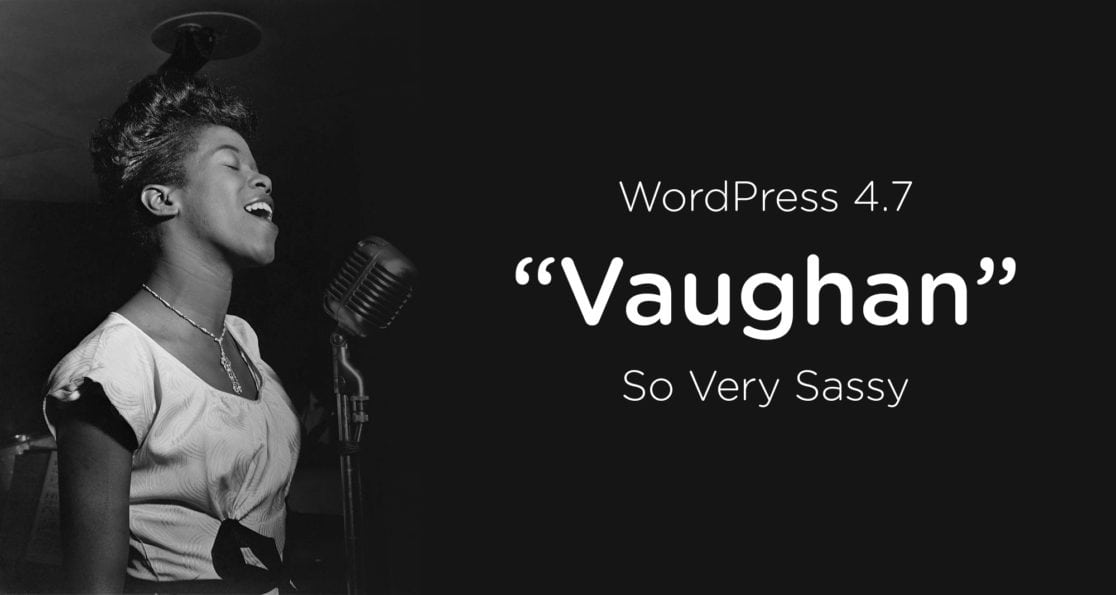There are skills one has to adapt to be an effective and efficient CEO and anyone can be a CEO. “It’s within everyone’s grasp to be a CEO” Martha Stewart. The most common skills are decision making being the leader of the team and communication. Some CEOs are born with skills while others have to acquire them through consistent practice. As a CEO, you have to remind yourself its not always about you and practice servant-leadership in most cases. We asked entrepreneurs what critical skills one must have to be a CEO and here are the awesome responses.
#1- Relatability and approachable

In today’s environment of connectivity and continuous interaction, it is increasingly important for CEO’s to remain relatable and approachable. Too often, the opportunity to build relationships and genuinely get to know someone is sacrificed for convenience and quick interaction. As a CEO and also as someone who works closely with CEOs across a variety of industries, I strongly believe that getting in front of your audience – employees, clients, partners, and competitors alike – is key to both effective communication and influential leadership.
Thanks to Vanessa Graham, VGraham, LLC!
#2- Delegating effectively

First and foremost, a CEO must be able to delegate effectively. Conversely, there are four skills that an effective CEO must not attempt to delegate: creating the company’s Vision; articulating the company’s Vision; ensuring the company has the financial and human resources to accomplish his/her Vision (aka fundraising and team-building; creating, cultivating, and maintaining the company’s culture. Of those four skills, creating and maintaining the company culture is the most important.
Thanks to John A. Swiatek, Coliant Corporation!
#3- Negotiation

All CEO’s should possess effective negotiation skills. This is a skill that isn’t talked about much when it comes to starting and operating a business, but it is imperative to the success of the business. You negotiate contracts with suppliers, clients, contractors, and other entities to help your business grow, but if you have bad negotiation skills, you could end up costing the company a ton of money in lost revenue/overpaid services. A CEO that can negotiate can save you a great deal of capital when it comes to the cost of business, that you put use towards improving the business and its processes.
Thanks to Jeff McLean, McLean Company!
#4- Adaptability and a visionary

From my experience, I would say it takes adaptability and a visionary mindset to be a CEO. When you’re at the forefront of running the business, you’ll be facing challenges of ever-changing market trends, manpower priorities, and profit targets. Hence, it’s important for you to quickly identify new opportunities you can apply to resolve these challenges and ultimately adapt to what will likely occur in the future. You also need to understand the possibility of your business approach getting ineffective in the future as well as being ready with action plans when this happens.
Thanks to Catherine vanVonno, 20Four7VA!
#5- 3 key traits

Resilience – I commonly refer to this also as stick-to-iveness. The CEO needs to keep the company on mission and drive towards ends even though there will be roadblocks and obstacles – it's up to the CEO to have the constant belief and drive the company forward when others would quit. 2. The ability to sees forests through trees – this skill is critical for CEOs. They have to be able to look at the world from 30,000 feet and not get caught up in the day-to-day or the company will lose its way. 3. Empathy – Perhaps the most important quality of a leader is empathy and kindness while still being the leader with the true vision for what's best for the company. The CEO is the front-facing personae of every organization and its critical they can articulate the company's values and vision.
Thanks to Marc Snyderman, Snyderman Law Group, PC!
#6- Discipline

Discipline is undoubtedly the most important tool I’ve used to become a successful CEO. Having the ability to set your mind to get a task done, and seeing it completion is the most important thing you can do as a young entrepreneur. Of course, this is difficult when you’re faced by distractions. Set realistic targets and anticipate interruptions. On the other side of the coin, you need to have the discipline to switch off and know your limits. Don’t take work home with you – set times for working and stick with it.
Thanks to Will Craig, LeaseFetcher!
#7- Passion

One of the biggest qualities a CEO must possess is passion. Of course, they should be passionate about their company and the product or service they provide. However, more than passion for what they do, they need passion for the people that they serve. This includes their team members, customers and vendors. As a leader in an organization, it is easy to want to separate the people from the product or service provided. However, holding in tension the people that make your product or service move forward in the market and the consumers reaping the benefit of your company can make all the difference. It all starts with passion.
Thanks to Ryan Vet
#8- Optimism, perseverance and keeping a strong work ethic

Some of the most important skills needed to be a successful entrepreneur are: optimism (i.e. see opportunity in every problem), perseverance (i.e. never give up) and keeping a strong work ethic (i.e. never be afraid of hard work). That said-while every entrepreneur needs to face the grind on a regular basis-I believe that knowing how to turn off the mind, to truly relax and reenergize, is a skill that must be learned. It's easy for entrepreneurs to be non-stop and always on working mode. As your own boss, you need to remember to take care of yourself. The truth is you don't always get a lot of praise or accolades, especially when you are just starting. It's important to be self-confident and believe in what you're doing with passion-because there's no guarantee anyone else will.
Thanks to Kristi Herold, Sport & Social Club!
#9- Wall-to-Wall Information Sharing

In my experience, one core trait that CEOs must possess is the capacity to be open when it comes to sharing information across their organizations. All too often, company leaders fear disclosing information outside of their executive-team circles, as it limits control. I understand that mindset, but you have to work to let that fear go because the most powerful leaders are the ones who build strong teams by connecting with them, enabling shared decision-making and allowing them to understand their contributions in a bigger picture. Withholding information from your broader team can come off as distrustful, and that approach will eventually backfire and undermine the leadership you’ve worked so hard to achieve.
Thanks to Wendi Burkhardt, Silvernest!
#10- Several skills

The attributes of success for CEOs today encompass what many would term as softer skills and those are strengths I have found in my career to be the very keys to my success – taking an individualized approach, role modeling a culture of kindness and caring, envisioning the future with an attitude of appreciation and openness. In terms of overcoming challenges, the two characteristics that move you through tough times are resilience – or what some would call grit – and optimism. I use optimism and shine a light on others. I get the greatest sense of satisfaction in helping CEOs build a brighter future for their organization. My optimism helps them not only see the if but believe it. As well, we select the leaders at Talent Plus for optimism and growth orientation – it's their primary responsibility to invest in those with whom they work – helping each of them create a platform for growth. When each colleague at Talent Plus grows, Talent Plus grows in turn.
Thanks to Kimberly Rath, Talent Plus!
#11- Listen and communicate effectively

Too often, CEO’s control the room and don’t give enough weight to the opinions of the people who are closer to the day-to-day operations. A good CEO will constantly take feedback from her/his managers, employees, and clients to make informed decisions concerning the future of the business. CEO’s should always be open to suggestions, and make it known that constructive criticism is welcome.
Thanks to Konstantinos Tsilkos, PharMed!
#12-Routine and focus

Routine and focus are essential skills to productivity as a CEO. Additionally, understanding the realistic building blocks required to accomplish a realistic (also big! and exciting!) goal and work backward for when those blocks must be put into place. Example goal: grow revenue by $xmil. Building block: sign 20 new clients over next year. Building block: schedule 10 sales meetings a month. Building block: make 50 cold calls a day. It’s much easier to stay motivated with bite-sized building blocks that you can attack daily than to stress about the final goal.
Thanks to Patrick Cahill, #twiceasnice Recruiting!
#13-Metacognition

I think one of the most essential skills that a CEO needs to have to be successful is the skill of metacognition. Metacognition is perhaps the important and necessary skill associated with both emotional intelligence and mindfulness. Research has shown that those in the organization with the lowest levels of EQ are those at the executive level. Yet, those are the people that are in the greatest need of emotional intelligence.
Thanks to Ryan Gottfredson
#14- Tie Purpose, Vision, and Culture to Results

Be willing to be a leader of a culture with vision, purpose and results instead of a friend to all. When I first started my company, we would hold a lot of parties and get-togethers that would get us nowhere. I quickly found that culture without purpose or vision will not get you, your customers, or stakeholders the results you need to stay in business and thrive. Having a vision for how we are purposefully adding value to our customers on a consistent basis was what brought our culture together and brought us the greatest results. The more we learned about our customers, their nuances, requests, value psychology, and how to maintain these relationships on a consistent basis, the stronger our culture became, and the better we led each other and ourselves.
Thanks to Louis Carter
#15-Emotional intelligence

Emotional intelligence is an often-overlooked skill, but it's an important trait for CEOs to possess. This is the idea that an individual with four core skill sets — including self-awareness, self-management, social awareness, and relationship management — is able to be a top performer within a company, surpassing individuals of traditional intelligence (high IQs). A CEO with a high ‘EQ' typically possesses likeability. Their down to earth nature and relatable personality allows them to engage with and develop strong relationships with everyone in the company. In turn, this makes them (the EQ individual) feel good about the work that they do and continue to keep working hard and staying focused.
Thanks to Deborah Sweeney, MyCorporation.com!
#16- Teaching and growing people

A piece of advice I got from a mentor a long time ago was this: Your job as CEO is not to grow a company, your job is to grow people who grow the company. If you want to be a big business that is respected far and wide, you’ve got to get into the business of growing people. Watching others learn, grow, and develop has been one of the most rewarding parts of my entrepreneurial journey. Great leaders find the bright side of any issue or challenge, staying positive in difficult situations. They use challenging situations as opportunities to show others the silver lining. Leadership is not something you do to people, but something you do with people.- Great leaders are great teachers. Through words, actions and beliefs, inspiring CEOs know what their future goals look like and can show others exactly how to get there. Commit to lifelong learning. With increased knowledge, experiences and skills, people lead to a more fulfilled life, which can profit everyone within a working environment.
Thanks to Adam Witty, Advantage!
#17- Managing emotions

Successful CEOs must be able to separate their emotions from the day to day requirements of work. Your team and customers will look at you to be the steady rock through difficult times. It’s okay to be stressed, or sad, or angry, or happy or a wide range of other emotions, and you need to filter these to make sure that you are still making clear, level-headed decision that are best for the business in the long term. This exercise takes practice, and no-one expects you to be perfect from day one, but you can improve over time.
Thanks to Jeremy Cross, Team Building Los Angeles!
#18-Breaking barriers

As a CEO, you need to know how to talk with your team. I proselytize radical candor heavily in the office, and while I believe hierarchy and organization have unquestionable operational value, they should never get in the way of candor–and it does for a lot of Filipino teams. Breaking barriers would result in successfully giving your instructions to your team even at times when being yelled, they would still understand it as long as you as a CEO communicated well the importance of their work.
Thanks to Mike Villar, Growth Rocket!
#19- Innovativeness

Being a CEO is to sustain – and to develop. Merely repeating what you were told and doing the same things will likely leave you behind in the fast-paced business environment. Instead, boldly think of the future – how can you make it better? Some solutions that we already use seem obvious, but in fact, there’s a lot of room for improvement. From time to time, question the current approach. Conduct a thought experiment in which you turn your strategy inside out. Ask a person from outside to bring a new perspective. Dare to think of the change!
Thanks to Dr. Mike Golpa, G4 by Golpa!
#20- Two skills

Ability to learn from the past and to look ahead. A CEO has to be able to look ahead and see past mundane, plane, and usual solutions to achieve business success. However, it also has to be able to learn from past experiences and apply this knowledge in the future. Ability to build relationships. Relationships we make trough life can help us in a significant way or set us back. Successful CEO has to be able to build successful and long-lasting relationships that will spread good word-of-mouth and promote business success.
Thanks to Boriana Slabakova, Petpedia!
#21- Risk-taking

Being a CEO is usually accompanied by making different decisions for the organization, company, etc. in turn, these decisions would play a key role in seeing the organization drawing into profits or losses. By taking risks, you will be ready for the losses and for the profits as well. However, the aspect of risk-taking needs to be accompanied by ideally being a critical thinker. This is because as much as risks need to be taken, they shouldn’t be jeopardizing the organization’s ability to survive and maintain a firm foundation.
Thanks to Mrs. Swati Chalumuri, HearMeFolks!
#22- People skills

It’s the ability to interact with other people, Yes, you have to have a vision and all those other qualities, but if you have terrible people skills, you’re never going to get in the role or build a company of any size in the first place. Great CEOs inspire others to do their best work. It’s what they are all about. They do what they can to build a fantastic leadership team so they can execute on a product roadmap. For me, it’s always about people. Finding great people, retaining great people. It’s the key ingredient to growth.
Thanks to Kenny Trinh, Netbooknews!












































 |
|